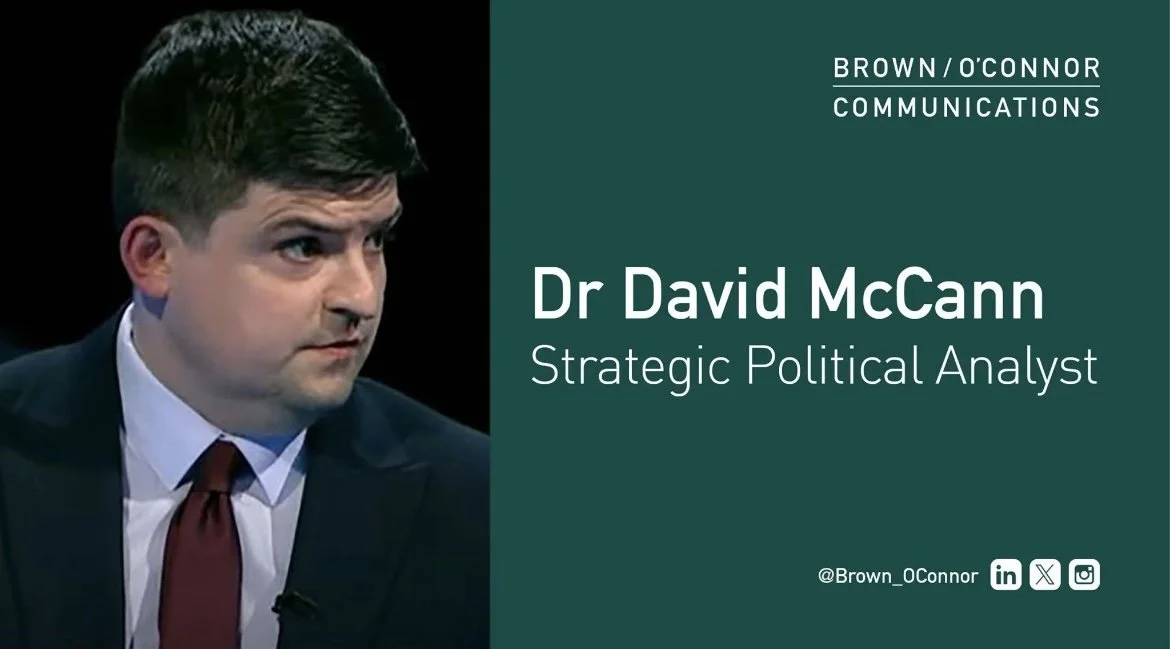By David McCann, Strategic Political Analyst at Brown O’Connor Public Affairs
The SDLP are meeting for their annual conference next week in Belfast. The Official Opposition will mark one year with Claire Hanna MP as the leader of the party, and Matthew O’Toole MLA will be reflecting on 18 months since devolution was restored.
Electoral Challenges and the Road to 2027
The party has faced a tough electoral road since 2019, losing four seats at the 2022 Assembly Election and 20 seats at the 2023 Local Government Elections. Facing an electoral pincer movement from the Alliance Party and Sinn Féin, the party has a challenging road ahead to regain its electoral footing. The recent Lucid Talk polls indicate some optimism; the party is regaining ground, and its leader is personally popular. Notably, she polls well with Alliance and Green voters.
For 2027, the SDLP’s task will be holding some of the marginal assembly seats that it has, namely East Londonderry and Mid Ulster. Falling to six seats is a possibility for the party, and how they campaign from now until May 2027 will be critical for them to hold their current seats and make some gains in places like West Belfast. To revive their fortunes, they will need to win back some of the voters they recently lost to the Alliance Party and then engage in a longer game with Sinn Féin.
Opposition as a Permanent Feature
What is clear for now is that opposition is here to stay in Northern Ireland. It is unlikely that we will see a repeat of the 2020 format, in which all five parties entered the Executive simultaneously. The SDLP is getting more attention and traction outside than it ever did with only one minister.
Since opposition is present, people in Northern Ireland still view it as a new part of their political structures, and as such, they don’t really know how to engage with it properly. Yet having an opposition is a massive opportunity for everyone to get their ideas on the agenda and see some of them get a bit more traction.
Unlike governing parties, oppositions never have the support of the civil service or the same level of resources to generate and develop policy ideas. At Westminster or in Dublin, oppositions typically seek ideas from think tanks and other outside organisations to establish a programme for a future government. The opposition can bring motions in the assembly, and their representatives on committees raise important issues.
Engaging with Opposition Politics
As opposition evolves in Northern Ireland, it presents organisations here with a considerable opportunity to gain traction for policy proposals and move the needle on some public policy ideas. The Executive remains the primary decision-making body for what gets passed, but that does not mean the opposition does not have a meaningful role in helping ideas move forward.
The SDLP are still finding their feet in this role, trying out new approaches and ideas for what can hold the Executive to account and help the party renew. This is a significant opportunity for everyone to get proposals moving. Whilst an opposition can never put these ideas into reality, they can raise their profile.
The political challenges for the SDLP remain. Can they build momentum and become credible challengers to the Alliance Party in 2027? Outside of the politics, there are huge opportunities to shape and develop an opposition that is full of new and meaningful ideas.
Part of that job rests with people and organisations engaging with it. Northern Ireland finally has an opposition; let’s use it.

